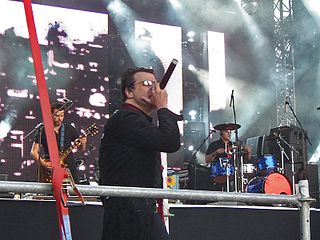
Van Gogh is a Serbian and former Yugoslav rock band from Belgrade.

Kerber is a Serbian and Yugoslav hard rock band formed in Niš in 1981.

Nebo je malo za sve is the debut studio album from Serbian and Yugoslav hard rock band Kerber, released in 1983.
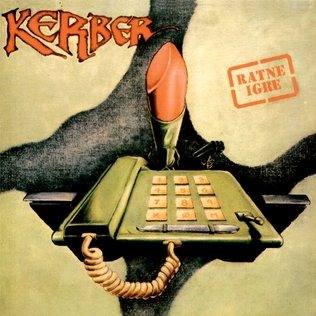
Ratne igre is the second studio album from Serbian and Yugoslav hard rock band Kerber, released in 1985.

Seobe is the third studio album by Serbian and Yugoslav hard rock band Kerber, released in 1986.

Peta strana sveta is the fifth studio album from Serbian and Yugoslav hard rock band Kerber, released in 1990.

Zapis (transl. Inscription) is the sixth studio album by Serbian and Yugoslav hard rock band Kerber, released in 1996.

121288 Uživo is the first live album by Serbian and Yugoslav hard rock band Kerber, released in 1989.
Karizma is a Serbian and Yugoslav hard rock band formed in Belgrade in 1985.
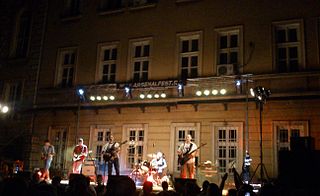
Babe is a Serbian rock band.

Zona B is a Serbian and Yugoslav blues rock band formed in Belgrade in 1987. They are one of the most prominent blues rock acts of the Serbian and Yugoslav rock scenes.

Rok Mašina is the 1981 debut and the only full-length studio album from Yugoslav hard rock and heavy metal band Rok Mašina.

Sabrana dela is a 7 piece box set from the Serbian and Yugoslav hard rock band Kerber, released in 2009. Sabrana dela features remastered versions of all six studio albums released by the band, and the previously unreleased track "Sveti Nikola" on the seventh disc.

Antologija 1983–1998 I is the first compilation album by Serbian and Yugoslav hard rock band Kerber, released in 1998. It was the first of two compilation albums the band released in 1998, the second one being Antologija 1983–1998 II. The album features songs from the band's studio albums released during the 1983–1996 period.

Antologija 1983–1998 II is the second compilation album by Serbian and Yugoslav hard rock band Kerber, released in 1998. It was the second of two compilation albums the band released in 1998, the first one being Antologija 1983–1998 I. The album features ballads and acoustic songs from the band's studio albums released during the 1983-1996 period.
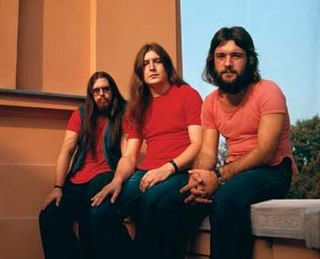
Pop Mašina was a Yugoslav progressive rock band formed in Belgrade in 1972. Pop Mašina is considered one of the most prominent bands of the 1970s Yugoslav rock scene.

Dragoljub Đuričić was a Serbia-based Montenegrin drummer.
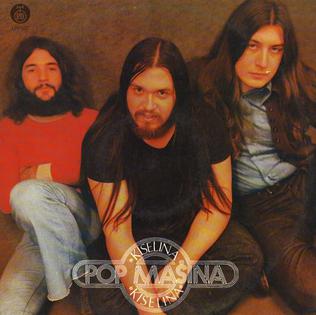
Kiselina is the 1973 debut album by Yugoslav progressive rock band Pop Mašina.

Kozmetika is the only album by the Yugoslav new wave/art rock band Kozmetika, released in 1983.
Rockovnik is a forty-episode documentary aired on Radio Television of Serbia in 2011, written by Sandra Rančić and Dušan Vesić and directed by Vesić. The series focuses on the history of former Yugoslav rock scene from its beginnings in the late 1950s until the year 2000. The name of the show is a bilingual pun based on the words "rock" and "rokovnik".


















